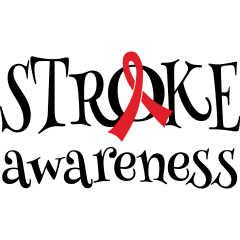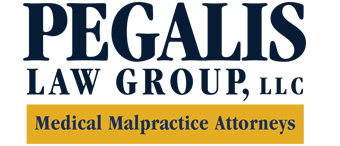Accurately Diagnosing Stroke
By designating May as American Stroke Month, the American Stroke Association aims to raise awareness about the critical importance of early detection and treatment of this life-threatening medical event. It’s crucial for patients to learn how to be their own healthcare advocates, given the risks of medical malpractice in stroke cases that may result in wrongful death.
Detecting the Signs of Stroke
The accurate diagnosis of stroke begins with the patient’s recognition of the potential signs and symptoms of stroke. These symptoms include:
- One-sided weakness, numbness, or paralysis
- One-sided facial drooping
- Confusion
- Excruciating headache
- Dizziness
- Slurred speech
- Impaired coordination
- Difficulty walking
 Diagnosing or Misdiagnosing Stroke at the ER
Diagnosing or Misdiagnosing Stroke at the ER
One of the reasons why doctors may fail to diagnose stroke properly is that some of the symptoms can mimic other health conditions, such as the following:
- Seizure
- Hypoglycemia
- Systemic infection
- Migraine
- Dementia
- Alcohol intoxication
However, because of the life-threatening nature of stroke, it’s imperative that doctors do consider the possibility of stroke when a patient presents with certain symptoms. Doctors ought to avoid emergency room errors by performing some of the following diagnostic exams and tests to check for stroke.
- Physical exam
- Medical history review
- Symptom review
- Blood tests
- Computerized tomography (CT) scan
- Magnetic resonance imaging (MRI) scan
- Carotid ultrasound
- Cerebral angiogram
- Echocardiogram
If a patient suffers a stroke that goes undiagnosed or is misdiagnosed, a medical malpractice lawyer will consider whether the doctor was negligent in failing to order any of these tests.
Getting Prompt Treatment for Stroke
An accurate diagnosis is crucial for administering the correct treatment. Most strokes are ischemic strokes, which are caused by an obstruction of blood flow to the brain. To clear the obstruction, emergency room doctors can administer powerful clot-busting drugs. However, if these drugs are administered to patients who are actually suffering a hemorrhagic stroke, the result could be disastrous because it will increase bleeding on the brain.
If someone in your family may have been affected by emergency room errors on Long Island, New York, you can find the answers you’re looking for at Pegalis & Erickson, LLC. We are a malpractice law firm committed to protecting the legal rights of patients and their families. Reach out to us today at (516) 684-2900 and let us know how we can help you.
Recent Posts
Popular Posts
- Annamarie Bondi-Stoddard Named One of The Top Attorneys by New York Metro Super Lawyers!
- A Look at Common Orthopedic Birth Injuries
- Steve Erickson named only Lawyer of the Year on Long Island, NY for Personal Injury Litigation
- Reducing the Risk of Medical Malpractice
- How Improper Prenatal Care Can Lead to Birth Injuries
categories
- Uncategorized
- Infographic
- Patient Safety
- Patient Health
- Stillbirth
- Birth Injuries
- Medical Malpractice
- Medical Negligence
- Event
- Erb's Palsy
- Injury
- ER
- Video
- Cancer Misdiagnosis
- Medication Errors
- Cerebral Palsy
- Medical Negligence Lawyer
- Anesthesia Injuries
- Brachial Plexus
- Prostate Cancer
- About Us
- Men's Health
- Skin Cancer
- Breast Cancer
- Misdiagnosis



